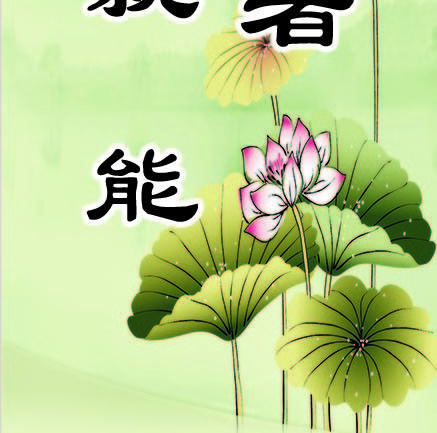
元旦的英语介绍
元旦的英语介绍
元旦,即公历的1月1日,是世界多数国家通称的“新年”。元,
谓“始”,凡数之始称为“元”;旦,谓“日”;“元旦”即“初始
之日”的.意思。下面跟着店铺来看看元旦的英语介绍吧!希望对你有
所帮助。
【元旦简介】
Yuandan is the first day of the lunar calendar. It is the day
when the earth has circled the sun for one round and is
beginning another circling.
It reprents a new beginning when people nd off the old
days and welcome the new ones.
As the first day of the year, Yuandan has been considered to
be the most important festival since the ancient times.
【Customs】
1. Kaisui(beginning of the year): According to the Chine
traditional custom, starting from to )of the
last evening of the twelfth lunar month, each family must prepare
offering s to deities at the altar.
At the same time, they too prepare food for the New Year
day: The whole family will then stay awake together to attend to
the year(called shou sui). After haishi, )will
come, and this is the arrival of New Year(Yuandan).
At this moment, people begin the celebration with fireworks.
Vegetarian and sweet foods will then be placed are the altar for
offerings, and incen be burned to welcome the deities. In the
ancient times, it was believed that haishi connected the two years
and thus was called kaisui.
At the same night, some families will follow the instruction
in Tongshu and place preparing altar in the direction of the
"fortune deity" during the "fortune time" to receive the deity. If
the direction of the "fortune deity" is at the "ill position", people
will choo to receive "happy deity" or "noble deity" instead.
2. There is an apparent difference in the custom of food
taking on Yuandan between the Chine in the northern and
southern regions. The northern Chine has the habit of taking
jiao zi(dumpling made of flour with vegetable and meat wrapped
inside). Some people may put a sweet or a coin inside jiao zi,
hoping to have a sweet year after tasting the sweet and a wealthy
year after tasting the coin.
on the other hand, the southern Chine have the taboo for
killing on Yuandan. Therefore, they do not take meat in tee
morning of Yuandan, so as to avoid bloodshed or mutual
slaughter. In order to evade misfortune, they have the first meal
of this day without meat. Instead, they take vegetarian food for
the sake of virtue.
3. What is special during the New Year is that parents or
elders will distribute red packets(ang pao or ya sui qian)to the
children. People in the ancient times were more particular in
giving away the red packets: the distribution took place on the
eve of New Year so that the kids could suppress the past year and
enter the New Year.
Ya sui has the meaning of overcoming the unpredictable
future. Reprenting the wishes for the healthy psychological
growth of the children, ya sui qian symbolis the elders hope to
e their children overcome all the unpredictable elements
brought by the "year".
4. There is an extraordinary number of taboos on Yuandan.
Each place has its own customs of taboo. Here, we will mention
only a few common taboos in Fujian Province, Guangdong
Province and Southeast Asia:
In the past, people commonly believed that fortune was
hidden in the hou. So, wsweeping of floor must be done in the
direction moving inwards, and there was no clearance of rubbish
at night. Particularly on the New Tear day, in order to keep
fortune from flowing out, there was no sweeping.
Some families kept this taboo until the fifth or even the
fifteenth day. If anything was broken, the pieces were wrapped
up in order not to let the fortune slip away and were dispod
only the fifth day.
Yuandan(in more rious families, the period extends from
the 1st to the 15th day) marks the new beginning. In the hope
that New Year brings good beginning, people should utter
neither unkind words nor vulgar language. Making nois,
fighting, quarreling and especially weeping are avoided to deter
misfortune.
There are even taboos of taking medicine and having sneeze,
for it is believed that they can lead to sickness throughout the
year. Taboos of the past also concerned the u of knife and the
breaking of things. If a thing was broken, the word "break" or any
other word importing similar meaning was not ud. Instead,
words like "failing to the floor and blossoming like flowers" which
delivered pleasant ns were ud to suggest good
connections.
On Yuandan, neither lending and nor giving of money to
others is done so that there will be no out-flowing of money
during the year. There is also the saying that if a male sleeps in
the afternoon, his career will breakdown, and if a female has an
afternoon nap, the kitchen will collap.
5. Ancient rite: In the past, there was a rite called he
zheng(proper greeting)during New Year. When a person paid a
New Year visit to friends or relatives, he took along a piece of
paper or card on which the name of the host was written wit
Chine brush. The receiver of this greeting card would normally
paste it on the wall of his main hall to show his respect to and
appreciation for the visitor.
The quantity of greeting card received reflected the persons
public relationship with others, while the names and status of the
people who gave the greeting cards indicated the hosts
boundary of social network and standard of living. Nowadays,
becau of easy communication, convenient transportation
system and wider social network, when people nd their
greetings they tend to follow the Western style.
The greeting is now done by mail and even by email. Today,
he zheng is done by simply bringing along red packets and food
prents when making a visit.
To be in line with the custom of to giving away money on the
first day, families in some places do not pay New Year call to
others. Instead, the whole family simply goes out to enjoy
themlves or stayed at home for family happiness.
6. In the past, there was a superstition that when a person
left his hou in the New Year, he must take the correct first step.
A particular person would look for the fortunate direction in
accordance with the day, month and year of this birth basing on
the explanation of Chine calendar.
On Yuan Dan, when a person stepped out of his hou, he
must go in the fortunate direction and avoid the unfortunate
direction. Even people of less particularity also consulted Chine
calendar to find out where the fortunate directions and fierce
deities were before the first step out of their hous.

本文发布于:2023-11-15 16:07:04,感谢您对本站的认可!
本文链接:https://www.wtabcd.cn/zhishi/a/1700035625216280.html
版权声明:本站内容均来自互联网,仅供演示用,请勿用于商业和其他非法用途。如果侵犯了您的权益请与我们联系,我们将在24小时内删除。
本文word下载地址:元旦的英语介绍.doc
本文 PDF 下载地址:元旦的英语介绍.pdf
| 留言与评论(共有 0 条评论) |